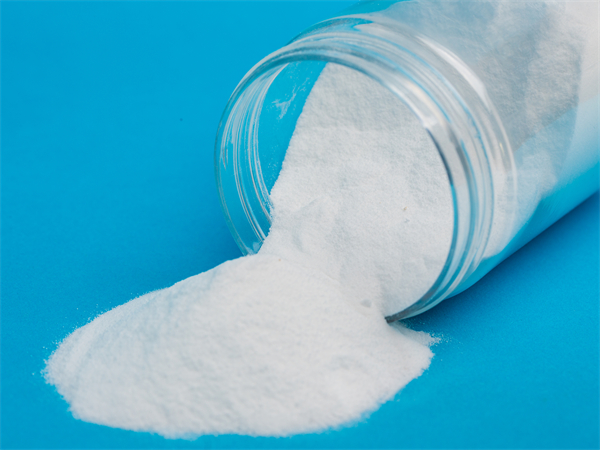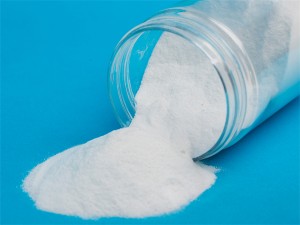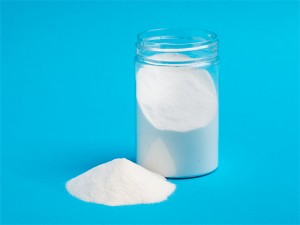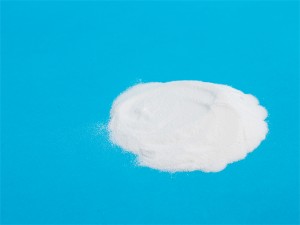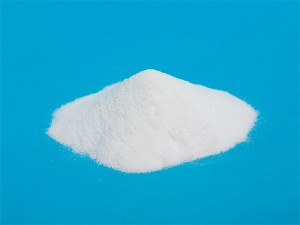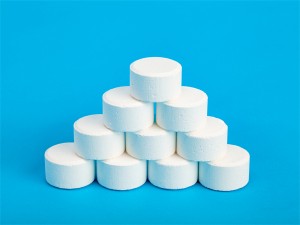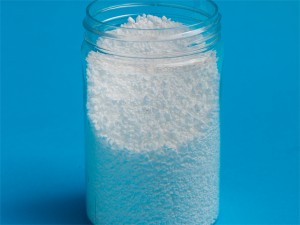Trichloroisocyanuric acid poeder Pool desinfectant
Oare hannelammen: ● Trichlor ● lsocyanuryske chloride
Molekulêre formule: c3o3n3cl3
HS Koade: 2933.6922.00
Cas nr.: 87-90-1
IMO: 5.1
Un nr.: 2468
Dit produkt is in organyske chloor-chloor Desinfektant mei in effektive chloor-ynhâld fan mear as 90%. It hat de skaaimerken fan stadichoan frijlitting en stadichoan frijlitting. As in nij soarte fan hege effekens fan hege effisjinsje en blekende agint hat, hat it in breed oanbod fan applikaasjes en hat gjin negative effekten op it minsklik lichem.
Produkt foardielen
TrichloroisocyAnuric acid heart by klasse 5.1 oksidearjende agent, dat is in gefaarlik, wyt kristalline poeder as korrelige solide, mei in sterke skerp geur fan chloor gas. De minder chloor geur betsjuttet dat ús TCCA-kwaliteit folle better is as oaren. Lykas TCCA út Japan is de geur folle leger dan de produkten fan Sina. De Chloor Odor fan TCCA is net besibbe oan de beskikbere chloor. fan ûnreinheidynhâld. Minder rook, mear suverens. Om't it ûnreinmasjinemateriaal reageart mei TCCA om de chloor-geur frij te litten. En de frijlitting fan chloor sil resultearje om te ferminderjen fan beskikbere chloor.
Meganisme
TrichloroisocyAnuric acid heart by de klasse fan chlorineare isocyanurates en is in gasbeskermend derivative fan isocyanuryske soere. It mishanneling fan disinfeksje: oplost yn wetter om hypotlloruële soer te produsearjen mei aktiviteit om mikroorganismen te fermoardzjen. Hypochloruze soer hat in lyts molekulêr gewicht, en it is maklik om te diffúsearjen nei it oerflak fan 'e baktaasje en de selmembraan yn' e baktearje, oksideare de baktearier en de dea fan 'e baktearjes te feroarsaakjen.
TCCA-tapassing
TrichloroisocyAnuric acid hat de effekten fan it fermoardzjen fan algen, deodorisearje, it suverjen fan wetter, en bleken. Yn ferliking mei natrium dichloroisocyanuraat, it hat sterker sterilisaasje en bleke funksjes en bettere resultaten. It wurdt breed brûkt as in waskjen en bleekmiddel foar katoenen, linnen en gemyske glêstriedstoffen. , Wolle Anti-Shrinkage Agent, Rubber Chloration, Sterilisaasjebehandeling fan doek-riolearring, deistige rioele, sikebosekerie, skonken, epidemyske previnsje, epidemy-previnsje, epidemy-previnsje, skodde previnsje, skodde previnsje, skodde previnsje, skodde previnsje, skodde previnsje, skodde previnsje, skodde previnsje, skodde previnsje, skodde previnsje, skodde previnsje, fatsoenlike previnsje, skodde previnsje, skodde previnsje, skodde previnsje, skodde previnsje, skodde previnsje, skodde previnsje, skodde previnsje, skodde previnsje, skodde previnsje, skodde previnsje, skodde previnsje, skodde previnsje, skodde previnsje, skodde previnsje, fatsoenlike oanmerking, Grutte-gebiet sterilisaasje nei natuerrampen en man-makke rampen, ynfeksje, ensfh. It kin ek wurde brûkt yn 'e synthese fan naftolen.

